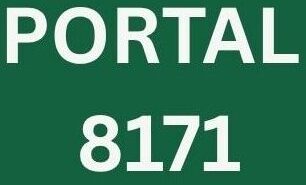Pros and Cons of Payday Loans, Payday loans are short-term, high-interest loans designed to provide quick cash to borrowers facing immediate financial needs. Often marketed as a solution for emergency expenses, these loans have sparked debates due to their accessibility, high costs, and potential to trap borrowers in a cycle of debt. In this comprehensive 1500-word article, we’ll explore the pros and cons of payday loans, their impact on personal finances, and whether they’re worth the risk. This SEO-optimized guide aims to help readers make informed decisions while addressing key questions about payday loans.
What Are Payday Loans?
Payday loans are small, unsecured loans typically ranging from $100 to $1,500, intended to cover expenses until the borrower’s next paycheck. They are often due within two to four weeks and come with high interest rates and fees. Borrowers can access these loans through storefront lenders, online platforms, or mobile apps, with minimal requirements like proof of income and a bank account.
Payday loans are particularly appealing to individuals with poor credit or those who need cash quickly. However, their convenience comes at a steep cost, making it essential to weigh the advantages against the risks.
Keywords: Payday loans, short-term loans, high-interest loans, quick cash, emergency loans
The Pros of Payday Loans
Payday loans have certain benefits that make them attractive, especially for those in urgent financial situations. Here are the key advantages:
1. Quick Access to Cash
One of the biggest draws of payday loans is their speed. Many lenders offer same-day or next-day funding, making them ideal for emergencies like medical bills, car repairs, or utility payments. Unlike traditional bank loans, which may take days or weeks to process, payday loans provide near-instant relief.
2. Minimal Eligibility Requirements
Payday lenders typically have lenient eligibility criteria. Borrowers don’t need a high credit score or extensive documentation. A steady income, a valid ID, and an active bank account are often enough to qualify. This accessibility makes payday loans an option for those who may not qualify for traditional loans due to poor credit.
3. No Credit Check
Unlike conventional loans, most payday lenders don’t perform hard credit checks. This is a significant advantage for individuals with bad credit or no credit history, as it reduces the risk of rejection based on past financial mistakes.
4. Flexible Use of Funds
Payday loans are unsecured, meaning borrowers can use the funds for any purpose without restrictions. Whether it’s covering rent, buying groceries, or paying for unexpected repairs, the flexibility of payday loans makes them versatile.
5. Simple Application Process
Applying for a payday loan is straightforward, often requiring only a few minutes online or in-person. Many lenders offer 24/7 online applications, adding to the convenience for borrowers with busy schedules.
Keywords: Quick cash loans, bad credit loans, no credit check loans, easy loan application, emergency funding
The Cons of Payday Loans
While payday loans offer immediate relief, their drawbacks can outweigh the benefits for many borrowers. Here are the major downsides:
1. Extremely High Interest Rates
Payday loans are notorious for their high annual percentage rates (APRs), which can range from 300% to 600% or more. For example, a $500 loan with a $20 fee per $100 borrowed could result in a $100 fee for a two-week loan, equating to an APR of approximately 400%. This makes payday loans one of the most expensive forms of borrowing.
2. Short Repayment Terms
Payday loans typically require repayment within two to four weeks, which can be challenging for borrowers already struggling financially. If the loan isn’t repaid on time, additional fees and interest accrue, increasing the debt burden.
3. Risk of Debt Cycle
The combination of high fees and short repayment terms can trap borrowers in a cycle of debt. Many borrowers take out new loans to pay off existing ones, leading to a spiral of increasing debt. According to the Consumer Financial Protection Bureau (CFPB), about 80% of payday loan borrowers roll over or re-borrow within 30 days.
4. Hidden Fees and Charges
Payday loans often come with hidden or unclear fees, such as late payment penalties, rollover fees, or prepayment penalties. These additional costs can significantly increase the total amount owed, catching borrowers off guard.
5. Impact on Credit Score
While payday lenders may not check credit initially, failure to repay can harm your credit if the loan is sent to collections. Some lenders report defaults to credit bureaus, which can further damage a borrower’s financial standing.
6. Predatory Lending Practices
Some payday lenders engage in predatory practices, targeting vulnerable populations with misleading terms or aggressive collection tactics. This has led to increased scrutiny and regulation in many states, but unethical practices still persist in some areas.
Keywords: High-interest loans, debt cycle, predatory lending, hidden loan fees, short-term loan risks
Who Should Consider Payday Loans?
Payday loans may be suitable for individuals facing urgent, one-time expenses who are confident they can repay the loan in full by the due date. For example, someone with a stable income who needs to cover a small, unexpected bill and has no other options might benefit from a payday loan’s speed and accessibility.
However, payday loans are not a long-term solution for ongoing financial problems. Borrowers with chronic financial difficulties or those who cannot repay the loan promptly should explore alternatives to avoid falling into a debt trap.
Keywords: Emergency cash needs, short-term financial solutions, payday loan eligibility
Alternatives to Payday Loans
Before opting for a payday loan, consider these lower-cost alternatives:
- Personal Loans: Many banks and credit unions offer personal loans with lower interest rates and longer repayment terms.
- Credit Card Cash Advances: While still costly, credit card cash advances often have lower APRs than payday loans.
- Borrowing from Friends or Family: A loan from loved ones may come with no or low interest, though it requires clear repayment agreements.
- Payment Plans: Some creditors, like utility companies or medical providers, offer payment plans to spread out costs over time.
- Emergency Assistance Programs: Local nonprofits, charities, or government programs may provide financial aid for specific needs like rent or utilities.
- Credit Union Payday Alternative Loans (PALs): Some credit unions offer PALs with capped interest rates and more favorable terms than traditional payday loans.
Keywords: Payday loan alternatives, personal loans, credit union loans, emergency assistance programs
Tips for Using Payday Loans Responsibly
If you decide a payday loan is your only option, follow these tips to minimize risks:
- Borrow Only What You Need: Take out the smallest amount possible to cover your expense.
- Understand the Terms: Read the loan agreement carefully to understand fees, interest rates, and repayment deadlines.
- Have a Repayment Plan: Ensure you have enough income to repay the loan on time to avoid rollovers or additional fees.
- Research Lenders: Choose reputable lenders and avoid those with a history of predatory practices.
- Explore Alternatives First: Exhaust all other options before resorting to a payday loan.
Keywords: Responsible borrowing, payday loan tips, avoiding debt traps
Regulatory Landscape and Consumer Protections
In response to concerns about predatory lending, many states have implemented regulations to protect consumers. These include caps on interest rates, limits on loan amounts, and restrictions on rollovers. For example, states like California and New York have strict laws governing payday lending, while others have banned it outright.
The CFPB has also introduced federal protections, such as requiring lenders to assess a borrower’s ability to repay before issuing a loan. However, regulations vary widely, so borrowers should research their state’s laws and check for licensed lenders.
Keywords: Payday loan regulations, consumer protections, state lending laws
Is a Payday Loan Worth the Risk?
The decision to take out a payday loan depends on your financial situation, repayment ability, and available alternatives. While payday loans offer quick cash and accessibility, their high costs and potential for creating a debt cycle make them a risky choice for many. They may be worth considering for a one-time emergency with a clear repayment plan, but they’re rarely a sustainable solution for ongoing financial needs.
Before committing, weigh the pros (speed, accessibility, no credit check) against the cons (high interest, short terms, debt risk). Exploring alternatives like personal loans, credit union PALs, or emergency assistance programs can often provide a safer and more affordable solution.
Keywords: Payday loan risks, financial decision-making, short-term loan evaluation
Conclusion
Payday loans can be a lifeline in emergencies, but their high costs and risks require careful consideration. By understanding their pros and cons, exploring alternatives, and borrowing responsibly, you can make an informed decision that aligns with your financial goals. Always prioritize long-term financial stability over short-term fixes, and seek advice from financial counselors if needed.




